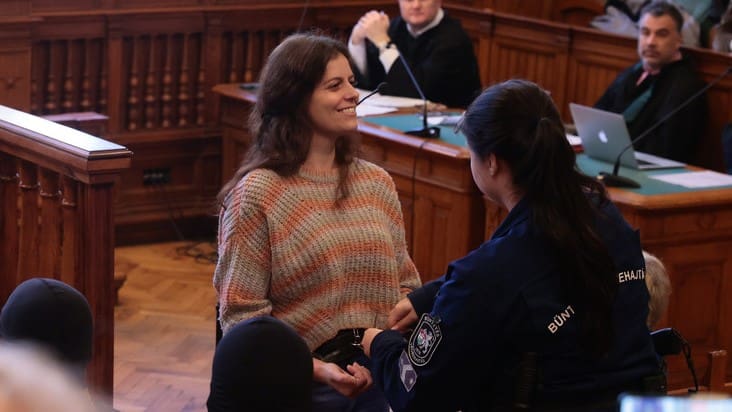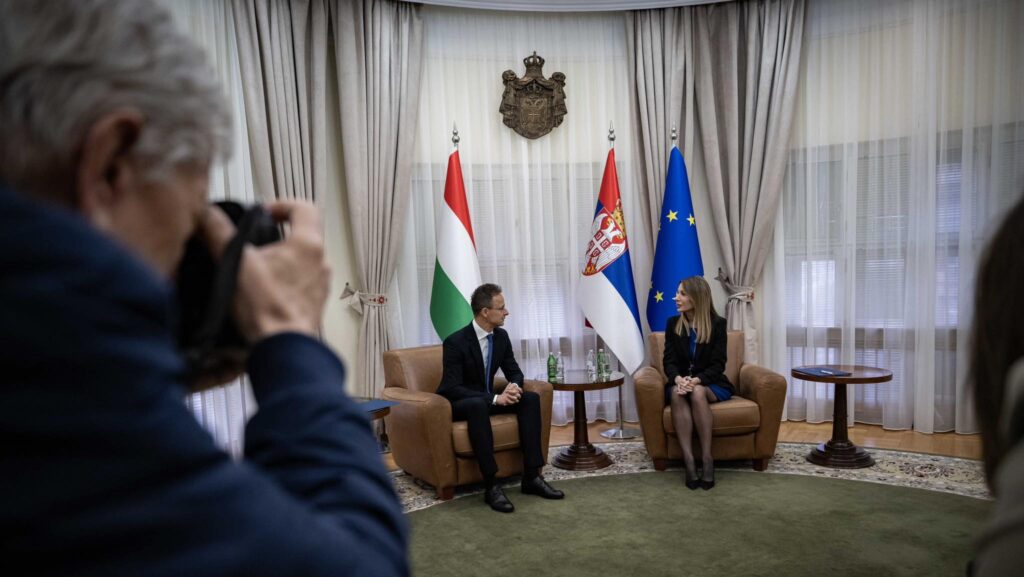The Italian newspaper Il Giornale made an exclusive interview with László Dudog, one of the most severely injured victims of the far-left rioters’ attacks in Budapest in February last year. He explained the horrific details as such: ‘my fiancée and I were attacked and injured with bars, batons and knives by those criminals…They smashed my head with bars. My fiancée was stabbed twice in the legs. It’s a miracle we’re alive’. He said he did not know why the far-left attackers chose them: ‘No one, upon seeing us, could discern whether we were aligned with the right or the left. We walked around, holding hands and chatting, just like many other couples.’
As he mentioned, the ambush caught them completely off guard, and he did not even have time to glimpse the attackers’ faces. ‘The initial blows to my head were so severe that I immediately lost consciousness. I only recall the paramedics administering first aid before I was transported into the ambulance, and the policemen questioning me about the incident.’ The victim stated that his fiancée was stabbed in the thigh, pepper-sprayed, and kicked in the face. ‘Even now, a year later, she still has a bone fragment protruding beneath her eye.’
The man added that the attack resulted in the complete paralysis of the left side of his face.
Twenty radical far-left ‘anti-fascist’ activists arrived in Hungary a year ago with the intention of targeting neo-Nazis and neo-Nazi sympathisers. According to their own testimony, they selected their targets solely based on appearance, likely leading to the targeting of 60-year-old László Dudog and his partner.
The interview by Il Giornale is particularly noteworthy because one of the far-left attackers is Italian. The trial of Ilaria Salis recently commenced, and the allegedly poor conditions of her detention, along with the fact that she was presented before the judge in handcuffs, as per Hungarian law, sparked a diplomatic issue between Hungary and Italy. The controversy escalated to the level of the foreign ministers, prompting Giorgia Meloni to engage directly with Viktor Orbán to address the circumstances surrounding her detention.
In a joint statement, Italian Foreign Minister Antonio Tajani and Justice Minister Carlo Nordio emphasized their commitment not to interfere in the ongoing judicial proceedings against the far-left activist in Hungary. They expressed respect for the legal sovereignty of the countries involved and confirmed that they would not seek to initiate house arrest.
So far, the Italian media has portrayed the events through a singular narrative:
depicting the ‘anti-fascist’ prisoner as an innocent victim unsafe in ‘authoritarian’ Hungary.
As reported by Hungarian Conservative, some Italian left-wing politicians have not hesitated to call Hungary a country ‘resembling South American dictatorships.’ The lawyers of the woman have already announced that they are turning to the European Court of Human Rights over her alleged mistreatment.
In an interview with Italian public television, Hungary’s Ambassador to Rome Zoltán Ádám Kovács vehemently refuted the accusations made by the woman’s family and lawyers regarding Hungary’s alleged failure to adhere to detention standards. The Hungarian ambassador in Rome labelled the accusations as slanderous and emphasized that the detained woman had been afforded the opportunity to meet her lawyer on numerous occasions. Additionally, he highlighted that she maintained regular contact with her family.
Il Giornale’s article has the potential to provide Italian readers with a more accurate portrayal of the events, prompting them to reconsider the misrepresented image of Hungarian justice and Hungary that has been presented to them.
Related articles:








